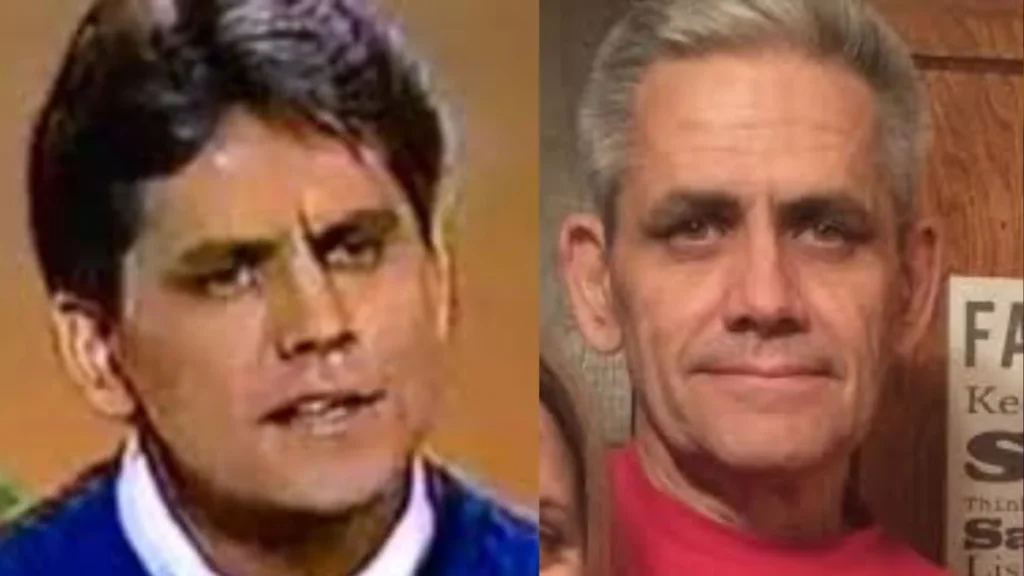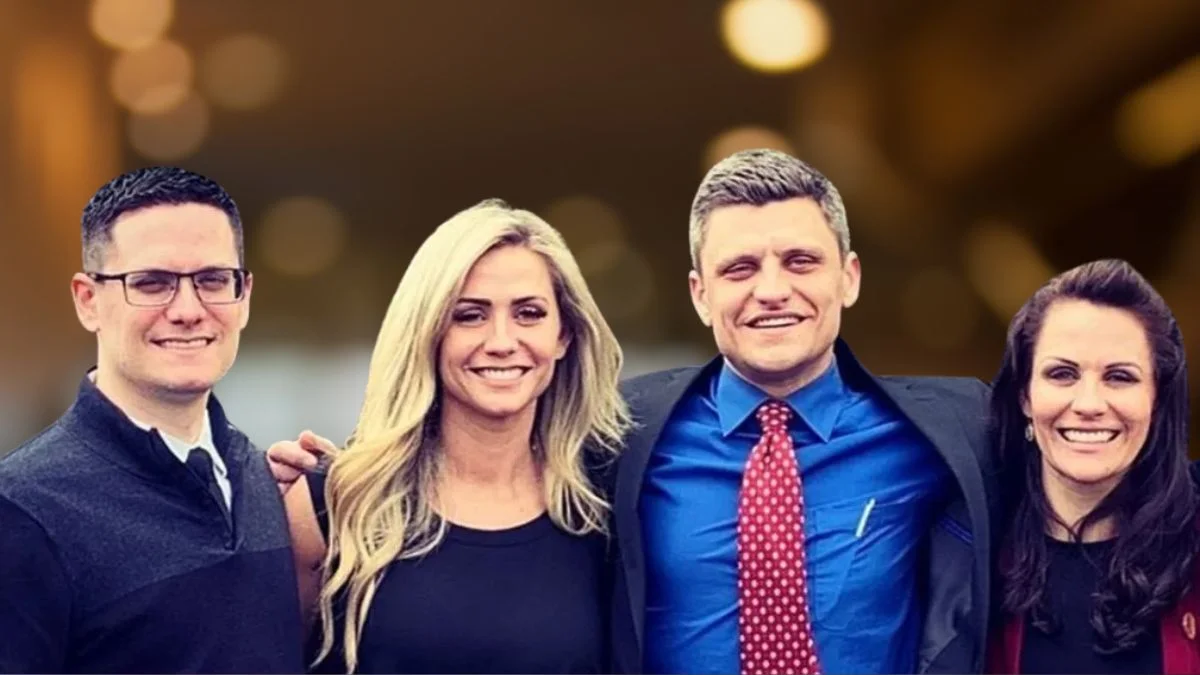Steve Cartisano, born on August 15, 1955, in Modesto, California, USA, became a figure known for his adventurous spirit and controversial camp operations. His involvement in youth camps gained attention throughout the late 1980s and 1990s, and despite the intrigue surrounding his programs, Cartisano’s career was often marred by intense media scrutiny and legal troubles. He passed away on May 4, 2019, in Durant, Oklahoma, at the age of 63, leaving behind a legacy that is as complicated as it is intriguing. This article explores the life and legacy of Steve Cartisano, his contributions to adventure camps, and the controversies that surrounded him, incorporating the key details of his life and career.
Early Life and Career Beginnings
Born in Modesto, California, Steve Cartisano grew up during a time when outdoor adventure and survival training were gaining popularity, fueled by a broader cultural fascination with exploration and self-sufficiency. His early life remains relatively undocumented, but Cartisano’s drive for adventure and his affinity for the outdoors became the hallmark of his career.
Cartisano’s name first began to gain recognition in the 1980s, primarily through his involvement with adventure and survival camps designed for young people. One of the most notable was the “Challenger” camp in 1989, which marked the beginning of Cartisano’s involvement in what would eventually become a series of camps that sparked widespread media attention. These camps were structured to offer young participants the opportunity to experience physical and mental challenges while being immersed in wilderness environments.
The Challenger Camp Controversy
The Challenger camp, founded by Cartisano, was advertised as a place where young people could develop resilience, learn survival skills, and build character through outdoor challenges. However, what was marketed as a beneficial and transformative experience soon turned into a controversial topic. Media scrutiny intensified when several participants and their families began to speak out about the alleged hardships faced at the camp.
Reports emerged accusing Cartisano of harsh treatment of campers, with some claiming that the camp’s approach went beyond the bounds of what was reasonable. Parents of participants raised concerns about the camp’s safety, noting the grueling conditions and the potential psychological impact on the campers. The camp’s methods were called into question, and soon, a criminal investigation followed.
Despite the controversy, Cartisano continued to defend his approach, asserting that the extreme nature of the camp was essential for fostering growth and resilience in young participants. Nevertheless, the Challenger camp marked the beginning of a long-standing association between Cartisano and legal trouble, which would follow him for the rest of his career.
Expanding the Camp Empire: From the Caribbean to Samoa
Following the media attention surrounding Challenger, Steve Cartisano expanded his reach by creating more camps, including a boating camp in the Caribbean and a third camp located in Samoa. These new ventures, like Challenger, were designed to offer young people the chance to engage in unique and challenging outdoor experiences. However, the camps faced similar criticisms, with parents and participants raising concerns about the safety, management, and overall operations of the programs.
The boating camp in the Caribbean, for instance, was designed to teach participants about navigation, seamanship, and survival at sea. While some campers described their experience as life-changing and character-building, others reported that the camp’s conditions were too harsh, and safety precautions were inadequate.
The Samoa camp was perhaps the most ambitious of Cartisano’s ventures. Located in a remote area, the camp provided an immersive cultural and survival experience for participants, who were encouraged to adapt to local conditions and participate in physically demanding activities. Like the other camps, however, this one also attracted negative attention due to allegations of mistreatment and inadequate oversight.
Media Scrutiny and Legal Investigations
As Steve Cartisano’s camp empire expanded, so too did the scrutiny surrounding his methods. The media attention that followed his various camps intensified, with several news outlets launching investigations into the conditions and safety practices at these camps. The allegations of mistreatment and neglect, along with Cartisano’s often defiant stance in response to criticism, kept his name in the public eye.
Legal investigations into Cartisano’s camps were launched, focusing on claims of child endangerment, negligence, and even potential fraud related to the operation of the camps. Despite the gravity of these investigations, Cartisano was never formally convicted of any criminal charges during his lifetime. This lack of conviction left many wondering about the full extent of the alleged wrongdoings at his camps and whether justice had truly been served for those who felt harmed by their experiences.
The Legacy of Steve Cartisano’s Camps
Despite the controversies, there is no denying that Steve Cartisano’s camps left a lasting impression on both the participants and the broader field of adventure education. His camps, while highly polarizing, inspired numerous individuals to pursue careers in the outdoor and survival training industries. Many of Cartisano’s defenders argue that his methods, while unconventional, were effective in teaching young people the importance of resilience, self-reliance, and overcoming adversity.
To his supporters, Cartisano represented a figure who was unafraid to challenge conventional ideas about youth education and outdoor training. His camps were seen as a way for young people to push their limits, develop independence, and prepare themselves for the real world. For his detractors, however, Cartisano’s camps represented a failure of oversight, with vulnerable young participants being subjected to unnecessary risks in the name of adventure.
Steve Cartisano’s Family and Personal Life
Beyond his career in adventure education, Steve Cartisano’s personal life also became a topic of interest, especially following his death. Steve Cartisano was married and had children, including a son named Dave and a daughter, though information about his family life has remained relatively private. His relationship with his family has been a point of curiosity, with some speculating about how his career and the controversies surrounding his camps may have affected his personal relationships.
Cartisano’s son, Dave, and his daughter have maintained a low public profile, though it is believed that they were deeply impacted by their father’s life and the scrutiny he faced. While little is known about his children’s perspectives on their father’s career, the public fascination with Cartisano’s life has led to speculation about how his family navigated the challenges of living in the shadow of his controversial legacy.

Steve Cartisano’s Cause of Death and Obituary
On May 4, 2019, Steve Cartisano passed away in Durant, Oklahoma. The details surrounding Steve Cartisano’s cause of death were not widely publicized, adding to the intrigue that had followed him throughout his life. His death marked the end of a complicated chapter in the world of adventure education, and many who knew him or had followed his career were left to reflect on his impact—both positive and negative.
Steve Cartisano’s obituary highlighted his contributions to the field of outdoor education, noting his passion for adventure and his belief in the power of resilience. While the obituary did not delve deeply into the controversies that had surrounded his camps, it acknowledged the unique and often polarizing nature of his approach to youth education. His passing was marked by both grief and reflection, with some mourning the loss of a visionary in the field of adventure training and others recalling the controversies that had defined much of his career.
Conclusion: A Life of Adventure and Controversy
Steve Cartisano’s life was one characterized by bold ambitions, intense media scrutiny, and an enduring belief in the transformative power of adventure. From his early days in California to his expansion of camp programs in the Caribbean and Samoa, Cartisano sought to push the boundaries of youth education through outdoor survival training. While his camps attracted both admiration and criticism, they undeniably left a lasting impact on the field of adventure education.
Cartisano’s death in 2019 closed the chapter on a career that had been rife with controversy, and the full extent of his legacy remains a subject of debate. As with many complex figures, Cartisano’s life invites questions about the line between innovation and irresponsibility, and how society views individuals who challenge established norms—whether for better or worse. Though his name may forever be associated with the controversies surrounding his camps, Steve Cartisano’s influence on adventure education continues to be felt, leaving an indelible mark on the field he so passionately championed.









